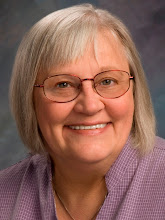Until the 2000 presidential election, I never gave any thought as to whether or not my vote was actually tabulated. I just assumed it was. After all, this is America, for crying out loud. You fill out your ballot, something or somebody counts it, and that's that.
All voters have reason to be concerned about election problems: machines that malfunction, count a single vote multiple times, or lose thousands of other votes; prohibitively long lines at polling places, particularly in urban areas; holding elections on a workday; inadequately trained poll workers; and the lack of a paper trail of votes registered using electronic machines, among others.
But what makes this a specifically independent-voter issue is the fact that all too many election problems result from voter suppression tactics and election manipulation on the part of the major parties.
Republican strategist Paul Weyrich, one of the founders of the Heritage Foundation and Moral Majority, once said this: "I don't want everybody to vote. Elections are not won by a majority of the people. They never have been from the beginning of our country and they are not now. As a matter of fact, our leverage in the elections quite candidly goes up as the voting populace goes down."
I'm sure if I looked hard enough, I could find an example of a Democrat expressing a similar sentiment. Neither major party can lay an exclusive claim on efforts to suppress and manipulate the vote, which is yet another reason why many of us became independents. We refuse to be associated with two parties that are so determined to acquire and maintain power that they would try to keep the rest of us from voting if that would be to their advantage.
We can repair our broken elections systems, but first we need to look at just what needs fixing. Next time: one tactic that especially rankles independents.




No comments:
Post a Comment